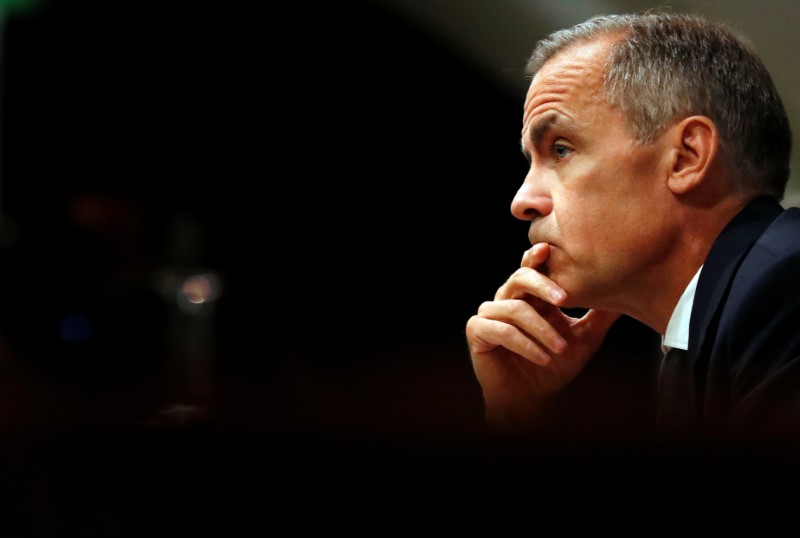By David Milliken
LONDON (Reuters) - Bank of England Governor Mark Carney said on Friday the central bank expected to raise interest rates in the coming months but he declined to be drawn on whether it would be as soon as next month, or if a series of rises is planned.
Since the BoE said after its September meeting it was likely to raise interest rates "in the coming months", financial markets have priced in an 85 percent chance of a rate move on Nov. 2, having previously seen a move as more than a year away.
The BoE has not raised interest rates since 2007 and last year it cut rates for the first time since 2009 following Britain's the vote to leave the European Union, lowering the benchmark cost of borrowing to 0.25 percent from 0.5 percent.
Carney was pressed on more exact timing in an interview with CNBC in Washington, where he is attending a meeting of the International Monetary Fund, but declined to be drawn.
"The language we used - and I'm going to stick to it ... was 'in coming months' ... and I won't make a decision here on air," he told the U.S. broadcaster.
The BoE has long said that when the time comes to start raising interest rates, it will be a gradual and limited process, and that a return to the 5 percent level of BoE rates before the financial crisis is highly unlikely.
Most economists polled by Reuters think that even raising interest rates by 0.25 percentage points to 0.5 percent next month would be a mistake, and some think that the BoE may stop there - effectively just reversing last year's rate cut.
Asked if the BoE's next rate rise would mark the start of a tightening cycle, Carney said: "I think you got to take one decision at a time, first point. Second, we are in a world of limited and gradual rate moves in any direction, in part because global equilibrium rates are so low."
Later, he said that globally interest rates were rising - so countries that kept rates on hold were effectively loosening policy.
Britain's employment rate was at a record high, and there was little spare capacity in the economy, even if the Brexit process created uncertainty about the future, he added.
Data next week is expected to show British consumer price inflation has hit a five-year high of 3 percent.

But economists who doubt the case for a rate rise say this mostly reflects the temporary effects of sterling's fall after the Brexit vote, and that there is little sign of more lasting sources of inflation pressure such as strong wage growth.